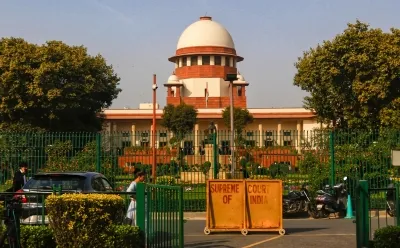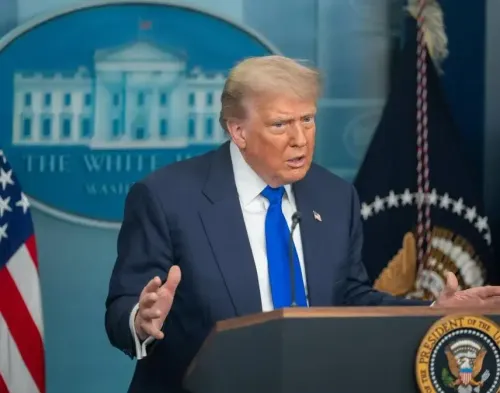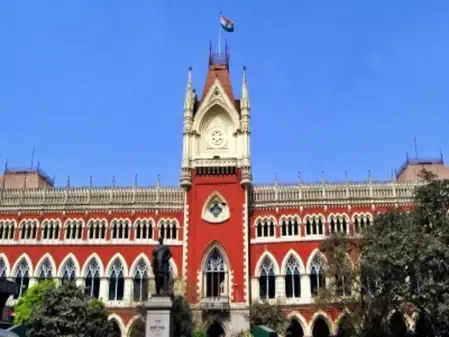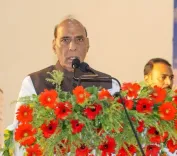Supreme Court Responds to Challenge Against IT Blocking Rules Regarding Notification to Digital Content Originators

Synopsis
Key Takeaways
- Supreme Court to review IT Rules regarding blocking notices.
- Petition claims optional notices violate constitutional rights.
- Rules 8 and 9 lack guidelines for issuing notices.
- Emergency provisions may infringe on procedural fairness.
- Right to be heard is essential in free speech matters.
New Delhi, March 3 (NationPress) The Supreme Court on Monday consented to review a petition opposing the IT Rules that render the issuance of a blocking request notice to the originator of digital content optional.
A Bench comprising Justices BR Gavai and AG Masih requested the Centre’s response to the petition aiming to annul Rules 16, 8, and 9 of the Blocking Rules, 2009, declaring them ultra vires to Articles 14, 19, and 21 of the Constitution.
The petition contested the constitutional legitimacy of these provisions, asserting that the optional nature of issuing a blocking request notice to the content originator grants unchecked discretion to the authorities, infringing upon the originator's right to be heard before any blocking occurs.
According to the plea, Rule 8 fails to compel the Designated Officer to notify the content originator to present their defense, thus stripping them of their fundamental right to be heard prior to any blocking measures taken, the petition argued.
The petition contended that such blocking actions undermine the right to freedom of speech and expression and violate the originator's constitutional right to a fair hearing, as enshrined in Article 21 and Article 19(1)(A) of the Constitution of India, contravening the principles of natural justice.
“To maintain the constitutionality of Rules 8 and 9, the word 'or' should be interpreted as 'and' since the right to be heard for an aggrieved party is a fundamental right, especially when another fundamental right, namely the right to free speech and expression of the originator, is at stake,” argued the petition submitted by advocate Paras Nath Singh.
It further noted that authorities frequently depend on the “arbitrary use” of Rule 9 as an emergency measure to block user content without prior notification, leaving the content originator without any recourse due to the absence of notice, a reasoned order, and an opportunity to be heard.
“The lack of notice and opportunity to be heard in emergency situations effectively eradicates procedural fairness and infringes upon the constitutional rights of individuals under Articles 14, 19, and 21, alongside the principle of natural justice,” the petition claimed.
Additionally, it asserted that Rule 16 continues to violate the principles of natural justice by failing to provide reasoned orders, notifications, or opportunities for hearings to aggrieved individuals whose information is blocked under Section 69A of the Information Technology Act, 2000.
“Rules 8 and 9 of the Blocking Rules, 2009, should be deemed unconstitutional for lacking guidelines regarding the discretion to issue notices to the originator. To preserve its constitutionality, it should be interpreted to mean that notices are mandatorily sent to the originator, ensuring both the intermediary and the originator are duly informed of any blocking request issued by the Designated Officer,” the plea urged.









